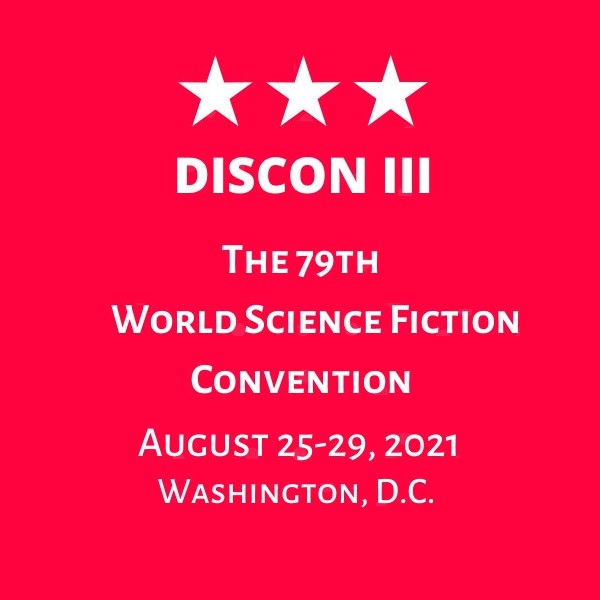DisCon III has announced that nominations are now being accepted for the 2021 Hugo Awards, the Lodestar Award for Best Young Adult Book, and the Astounding Award for Best New Writer (formerly known as the John W. Campbell Award), recognizing work from 2020. Voting remains open until 11:59 p.m. Pacific Time (PDT) March 19, 2021.
The Hugo Awards were first presented in 1953 and have been awarded annually since 1955. Members of the Worldcon vote on them for the given year, while the sitting Worldcon is responsible for administering them.
DisCon III has also decided to use its power under the constitution of the World Science Fiction Society (WSFS) to create a special committee category for the 2021 Hugo Awards: Best Video Game.
All CoNZealand members, and DisCon III members who registered before 11:59 p.m. Pacific Time (PST) December 31, 2020, are eligible to nominate. If you’re eligible to nominate, you should have previously received an email from DisCon III. Please check your inbox, spam folder, and automatic filters such as the Promotions tab in Gmail. If you haven’t received an email, contact [email protected] for assistance. To access the nomination portal, please visit www.discon3.org and select ‘Members Area’ under ‘Membership.’ Then, follow these steps:
- Enter the address this email was sent to and request sending a login link to you.
- Click your login link in the email just sent and enter the Members’ Area.
- Select ‘My Memberships and Ballots’ to access all memberships linked with that email address.
- Then, select ‘Nominate for Hugo Awards’ under the appropriate membership.
- You will then see instructions for completing the nomination ballot. You must agree to the terms by typing the full name associated with the membership into a confirmation box before you can begin entering your nominations.
You can make up to five nominations in each category. Be sure to save once you have made your nominations. You can save each category individually or keep them all at once by selecting the button at the bottom of the ballot. You can make as many changes as you like to your nomination ballots up until the deadline. An hour after you stop making changes to your ballot, the site will email you a copy of your selections.
The six most popular nominees in each category will appear on the final voting ballot.
The Hugo Awards are fan-run, fan-given, and fan-supported. DisCon III recommends that you nominate the works and creators you have personally read or seen that were your favorites from 2020.
If you prefer a printable paper form, you can download one in US letter or A4 sizes from the Hugo nomination portal, accessed as above.
For more information on the Hugo Awards, you can visit www.discon3.org or www.thehugoawards.org. Article III of the WSFS Constitution, which deals with the Hugo Awards, is available here.
More information will be posted here about voting and accessing the voter’s packet in late spring 2021.
Please contact [email protected] if you have difficulties accessing the online ballot, or if you have any other questions on the Hugo process.




